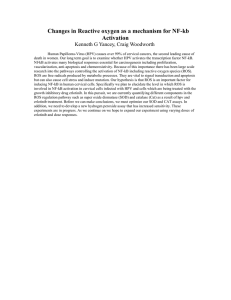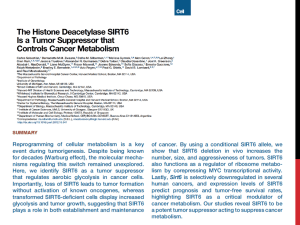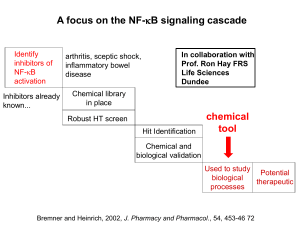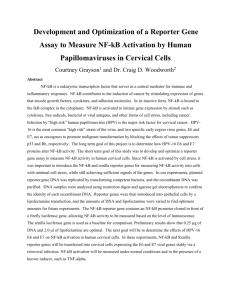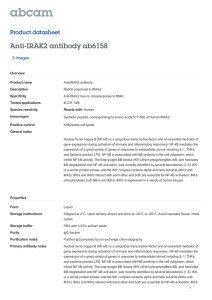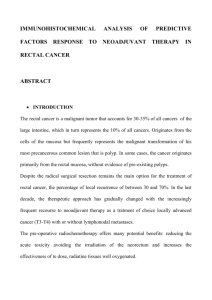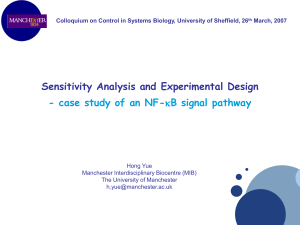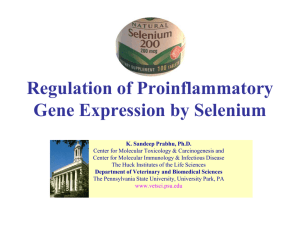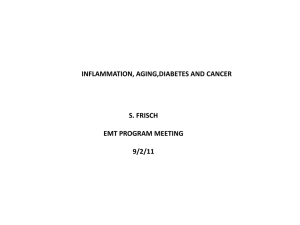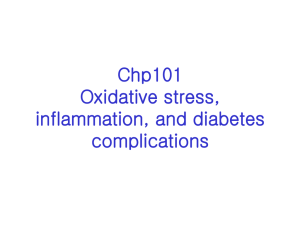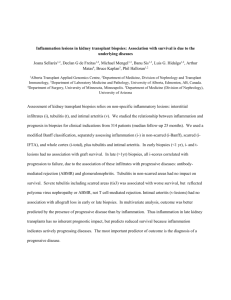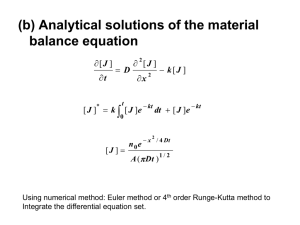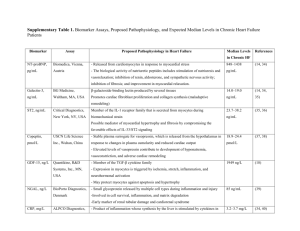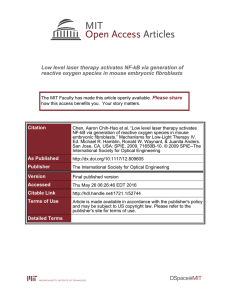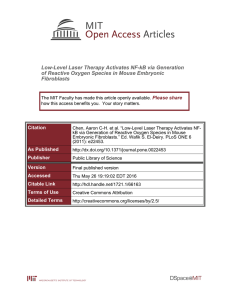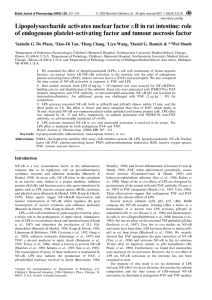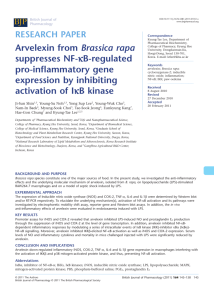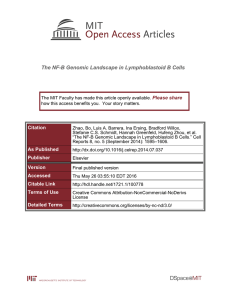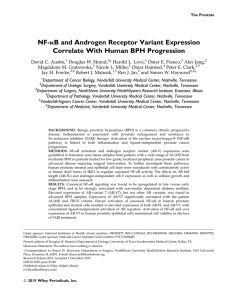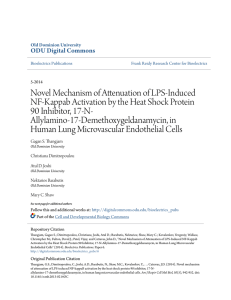289 - Cardiology Online
advertisement
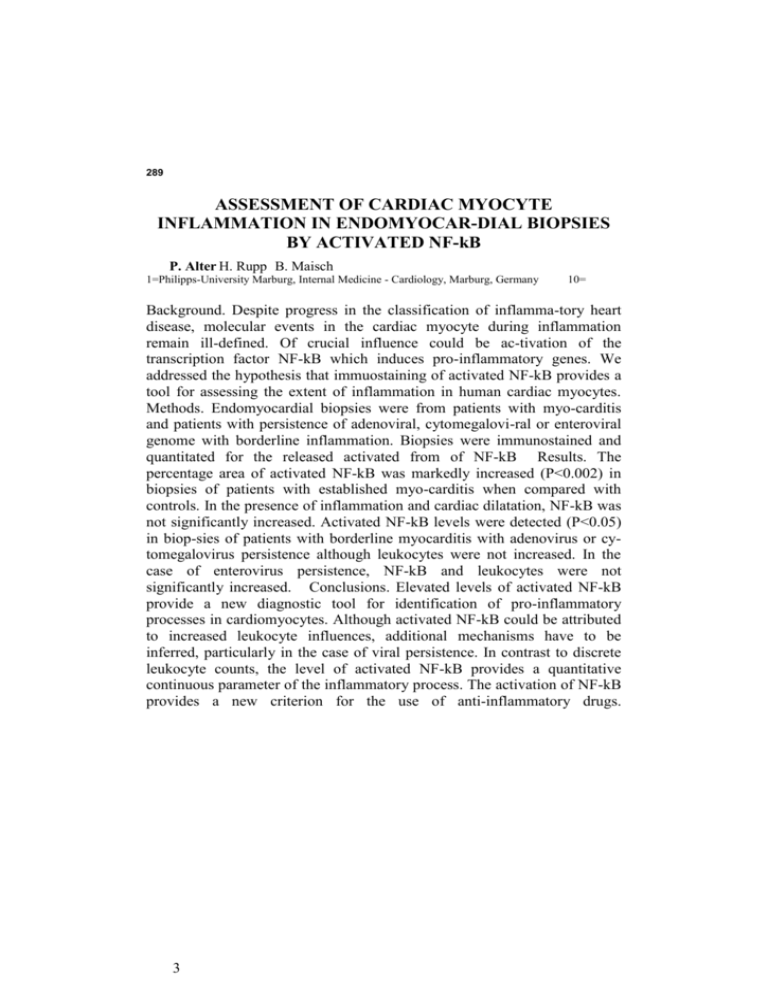
289 ASSESSMENT OF CARDIAC MYOCYTE INFLAMMATION IN ENDOMYOCAR-DIAL BIOPSIES BY ACTIVATED NF-kB P. Alter H. Rupp B. Maisch 1=Philipps-University Marburg, Internal Medicine - Cardiology, Marburg, Germany 10= Background. Despite progress in the classification of inflamma-tory heart disease, molecular events in the cardiac myocyte during inflammation remain ill-defined. Of crucial influence could be ac-tivation of the transcription factor NF-kB which induces pro-inflammatory genes. We addressed the hypothesis that immuostaining of activated NF-kB provides a tool for assessing the extent of inflammation in human cardiac myocytes. Methods. Endomyocardial biopsies were from patients with myo-carditis and patients with persistence of adenoviral, cytomegalovi-ral or enteroviral genome with borderline inflammation. Biopsies were immunostained and quantitated for the released activated from of NF-kB Results. The percentage area of activated NF-kB was markedly increased (P<0.002) in biopsies of patients with established myo-carditis when compared with controls. In the presence of inflammation and cardiac dilatation, NF-kB was not significantly increased. Activated NF-kB levels were detected (P<0.05) in biop-sies of patients with borderline myocarditis with adenovirus or cytomegalovirus persistence although leukocytes were not increased. In the case of enterovirus persistence, NF-kB and leukocytes were not significantly increased. Conclusions. Elevated levels of activated NF-kB provide a new diagnostic tool for identification of pro-inflammatory processes in cardiomyocytes. Although activated NF-kB could be attributed to increased leukocyte influences, additional mechanisms have to be inferred, particularly in the case of viral persistence. In contrast to discrete leukocyte counts, the level of activated NF-kB provides a quantitative continuous parameter of the inflammatory process. The activation of NF-kB provides a new criterion for the use of anti-inflammatory drugs. 3
